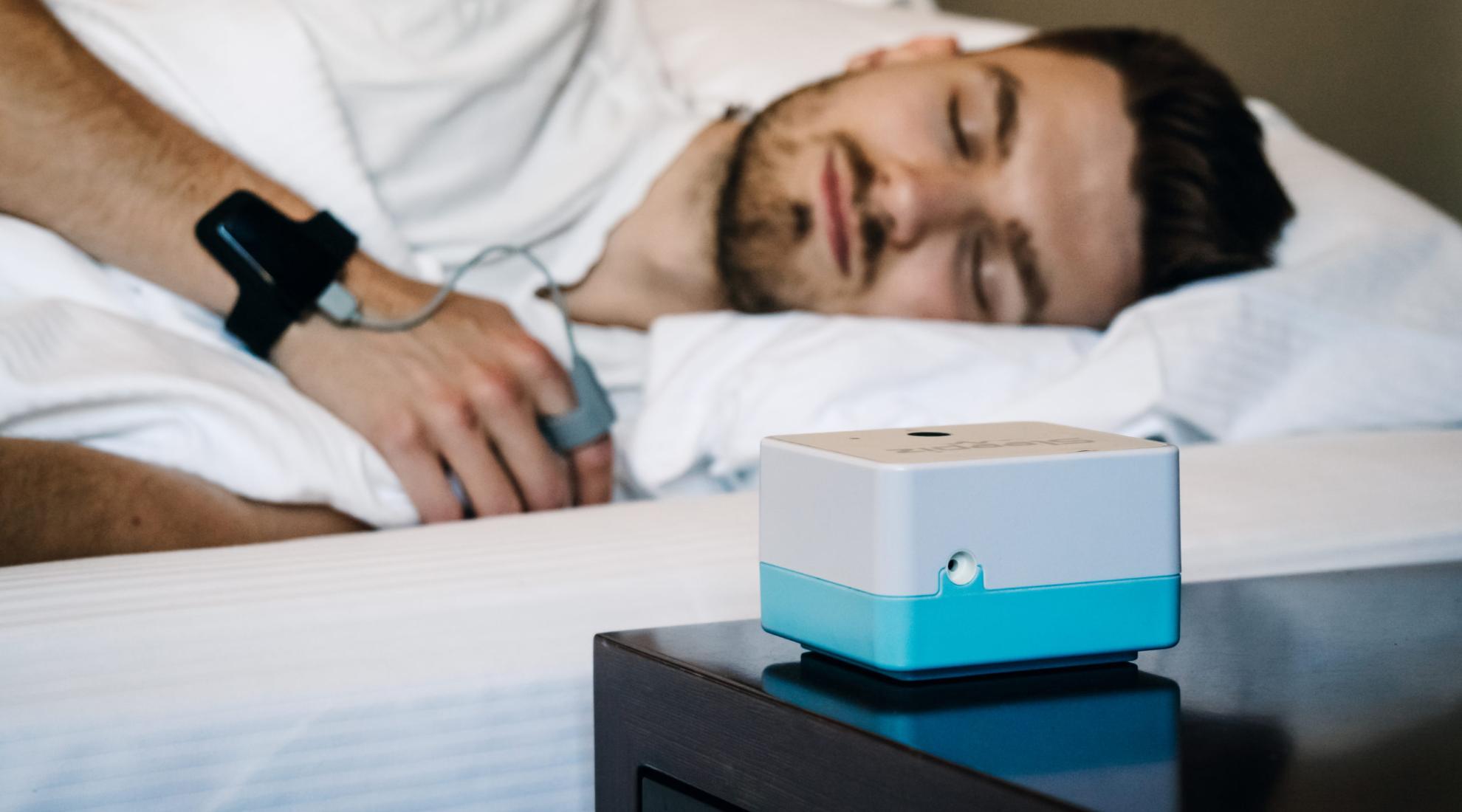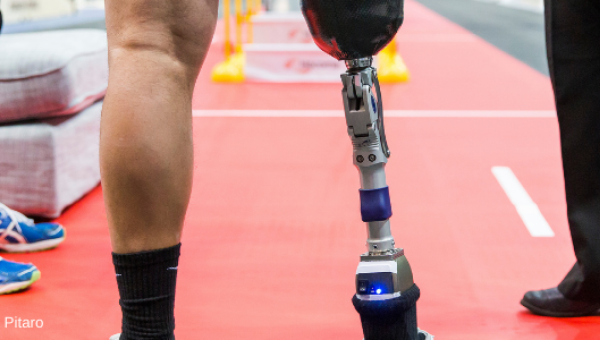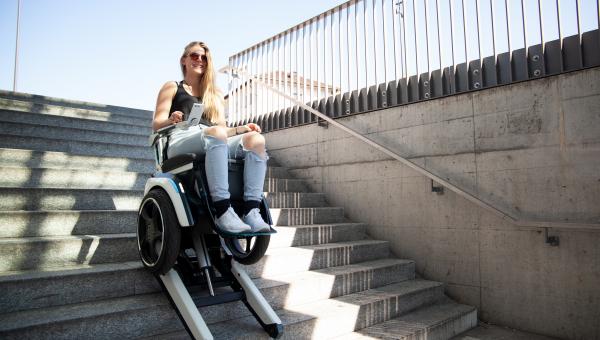A contactless sleep lab for your home

Untreated breathing pauses during sleep can lead to heart failure or a stroke. A device from an ETH Zurich spin-off can test whether you are affected, by simply placing it next to your bed.
Many people suffer from sleep problems. Especially in the case of sleep apnea or chronic respiratory diseases, these can also have serious consequences and lead to heart failure or a stroke. Long-term monitoring of such patients is currently barely possible. Graduates of ETH Zurich wanted to change this. The result is Sleepiz, a device that monitors sleep in a contactless but medically precise manner.
From 32 to zero wires
The Zurich-based company has been developing medical devices for contactless medical measurements of sleep- and breathing-related diseases since 2018. It’s co-founder Soumya Sundar Dash was invited to the ETH Zurich sleep lab to share his expert opinion on complications experienced during a sleep study. Upon entering the room, when he noticed that 32 wires were plugged into the participant to conduct the study, he wondered:
How can someone sleep naturally with so many wires attached and how correct would that data point be?
Monitoring relevant sleep parameters
The deliberation over this question led to Sleepiz One+, a small cube placed next to your bed for three nights to monitor all relevant sleep parameters - without any wiring or difficult set-up. Once placed next to the bed, Sleepiz measures breathing rate, pulse rate and body movement parameters. Optionally, a watch can be worn with a sensor on the wrist to simultaneously measure oxygen saturation.
According to the start-up, the cube uses low-power electromagnetic waves to detect movements based on the Doppler radar effect. The generated data is simultaneously transmitted to a cloud platform and analysed in the form of reports and trend analyses. These can then be discussed with an expert.
No more unfamiliar environment
Traditionally, monitoring a possible sleep disease is done in a sleep laboratory under the supervision of a sleep technician. However, this is cumbersome because many different cables have to be attached to the test subject’s body for the measurement. In addition, patients may have trouble sleeping in an unfamiliar environment during the test.
Following the company's market launch in Europe and India, an FDA listing paves the way for the medical device start-up to offer its solution for remote patient monitoring and clinical trials also in the United States. Over 50 employees and a Series A financial round of over CHF 6.2 million make the global expansion possible.




